Copter Carrying Putin’s Aide Lands On Football Field In Iran
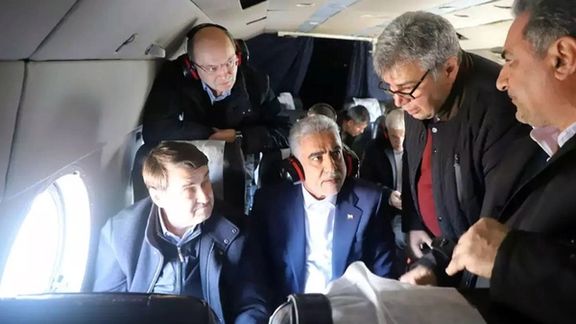
A helicopter carrying the Russian president’s aide landed on a football field in the northern city of Astara in Iran just before a game was scheduled to start.

A helicopter carrying the Russian president’s aide landed on a football field in the northern city of Astara in Iran just before a game was scheduled to start.
Mehr news agency claimed Wednesday that this was due to "security issues" which caused a 40-minute delay in the match that was supposed to be held in the stadium.
The report adds that Igor Levitin along with the governor of Iran’s Gilan province, the deputy minister of roads and Astara's MP were onboard the chopper headed to Astara to launch a railway project between Iran and Russia, but their copter suddenly landed in the stadium.
Iranian media have reported that half an hour before the start of the match, helicopters landed without any prior notice.
The claim of the presence of Putin's aide to launch the railway comes as the construction of this project has been delayed for over two decades and has not even kicked off yet.
The railway is supposed to connect Rasht in northern Iran to Astara and from there to the railway of the Azerbaijan Republic which is already connected to Russia. Iranian officials have recently announced they have begun negotiations with Moscow to develop the project.
IRNA news agency reported Wednesday that the most important achievement of Levitin’s trip to Iran so far has been the confirmation of Russia's participation in the rail project.
Russia has not yet officially announced whether it will participate in this one-billion-dollar project.

US State Department has not denied information by Iran International that US envoy Robert Malley held meetings in New York with Tehran's UN ambassador recently.
In response to questions, the State Department did confirm that messages are being delivered to the Islamic Republic of Iran, even though the nuclear deal, JCPOA, “is not on the agenda.”
In response to questions submitted by Iran International on January 17, State Department spokesperson Ned Price said, “We have the means to deliver specific and firm messages to Iran when it is in America’s interest to do so.”
Iran International had asked the DoS that according to information it obtained, US Special Representative for Iran Robert Malley met with Iran’s ambassador to the United Nations in New York, Saeed Iravani, “at least three times in the last two months.”
“But we're not going to get into details about how we deliver these messages, except to say that we do so in close coordination with allies and partners.”
In its response, the DoS did not deny or confirm Malley’s possible meetings with Tehran’s envoy but underlined that the US has its channels to communicate messages to the Iranian side.
Iran International followed up with the specific question to the State Department on January 18, “Just to confirm that you are not denying that meetings between Mr. Iravani and Mr. Malley took place in recent months in NY.”
A second response received from a spokesperson repeated that “As we have said, we have the means to deliver messages to Iran when it is in our interest to do so.”
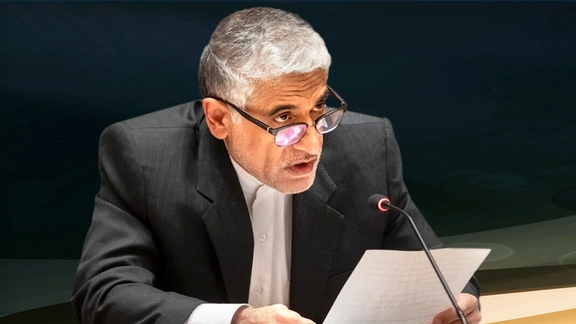
“I am not going to get into details about how we deliver these messages, but we do so in close coordination with allies and partners and make no apologies for delivering them firmly and consistently,” the spokesman responded.
Regarding the content of these messages, spokesperson Ned Price, in the first response on January 17, said, “We have consistently conveyed three messages: stop killing peaceful protesters, stop selling weapons to Russia to kill Ukrainians, and release the Americans you’ve wrongfully detained. We also use any available opportunity to make clear that we will take necessary steps to protect American citizens.”
If Malley did meet Iravani face-to-face, it would be the first reported direct meeting between US and Iranian diplomats since the Biden administration assumed office and offered talks to revive the JCPOA. Iran has consistently refused direct talks with the United States.
If any indirect talks took place between Malley and Iravani, for example, through European diplomats, the State Department chose not to specify it, except saying that Washington has the means to deliver messages to Tehran.
Asked to comment on the news, Richard Goldberg of the Washington thinktank FDD and the Director for Countering Iranian Weapons of Mass Destruction for the White House National Security Council from 2019-2020, said, "A secret backdoor betrayal of the Iranian people at this moment should be condemned by all Americans. Congress should investigate these reports thoroughly and anyone involved should be compelled to testify."
Tehran’s deadly suppression of protests since mid-September and its delivery of kamikaze drones to Russia, being used to attack Ukrainian civilian infrastructure, have heightened tensions between the Islamic Republic and Western powers. Also, 18 months of talks to restore the 2015 nuclear accord reached a deadlock right before protests broke out in Iran.
European countries and institutions are debating about listing the Revolutionary Guard as a terrorist organization, which would further reduce the chances of any foreseeable improvement in relations.
While Iran can free some of the thousands of detained prisoners, the ongoing violations of human rights both inside and outside the prisons are so widespread, that the whole security and judicial system must be overhauled before any meaningful change takes place.
In addition, Iran is not expected to end its close military and other types of cooperation with Russia, to satisfy Western demands before any nuclear talks can be resumed.
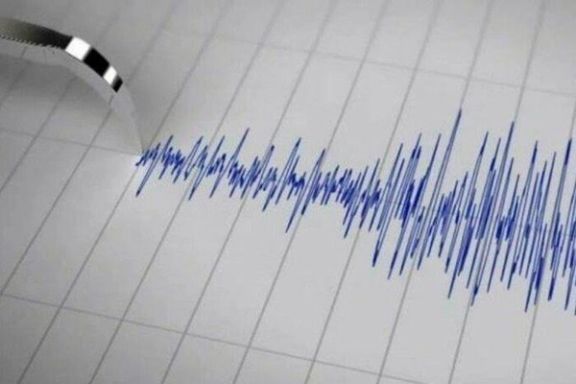
An earthquake of magnitude 5.4 has struck the northwestern Iran, in Western Azarbaijan Province Wednesday.
Iranian state media reported that rescue teams are dispatched to the quake-hit area in Khoy but have not reported any casualties yet.
Red Crescent official Morteza Moradipour told ISNA news agency that an earthquake of 5.4 magnitude hit Khoy city at 13:38 p.m.
According to him, the quake was at the depth of 12 kilometers.
He stated that about 20 minutes before the earthquake, a 3.6-magnitude foreshock was felt in the same area at a depth of 13 kilometers; therefore, the rescue teams had already been ready and dispatched to the earthquake-affected area promptly.
Iran is crisscrossed by major geological fault lines and is one of the most earthquake-prone countries in the world because it is located where the Arabian, Indian, and Eurasian tectonic plates meet.
Iran has had a terrible history of massive earthquakes in recent decades, with some killing up to tens of thousands of people and causing billions in damages, such as the magnitude 6.6 quake in Kerman province in 2003 that killed 31,000 people and flattened the ancient city of Bam.
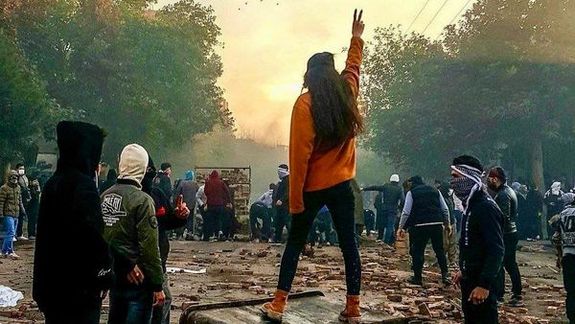
An expert in Tehran says Iran's foreign policy crisis, with its regional and international isolation, has its roots in the impasse in domestic domestic politics.
Academic Mehdi Zakerian told Ropydad24 website January 17, that the Iranian government's only solution for its foreign policy crisis is to garner the nation's support and trust. However, he noted that the country's rulers can always choose between the people and their unilateral decision making.
Zakerian explained that in modern politics, the country's national interests are the same as the nation's demands. He said government employees, workers, those who run a business, teachers, nurses and the like are finding it difficult to make ends meet, but President Ebrahim Raisi speaks on the state television in a way as if all the problems have been solved and the country's long-standing recession has ended.
In the area of foreign policy, Iran needs balanced relations with all other countries. Foreign relations are based on meeting both sides' needs. But when one country has more needs, other countries can take advantage of it. As an example, he said, "Russia is using Iran as a tool to get itself out of the quagmire."
Zakerian added that Russia wishes to prolong Iran’s nuclear dispute with the West so that it can extract more concessions from Iran. It can also dictate its own policy about oil and gas trade on Tehran by promising to rescue “Iran from its international isolation.” He said, "Russia is using Iran as its bridge to victory, although there is no prospect for Putin's victory in Ukraine."
The pundit argued that some Iranian decision-makers may know about this situation, but Tehran's isolation leaves no other option for it than going toward Russia and China. "At the time being, Russia is entangled in a self-inflicted situation in Ukraine and China has boldly set aside Iran and embraced Arab states.

Zakerian pointed out that because of Tehran's violations of its commitment under the JCPOA and insistence on boosting uranium enrichment it can no longer call for an agreement with the United States even if some officials genuinely wish to reach a deal. Meanwhile, like many Iranian analysts, Zakerian also said that the ongoing protests in Iran and the government's violent crackdown on dissent has sharply reduced its power on the international scene.
As a result, he said, Europe, the United States and China are no longer interested in continuing talks over the revival of the 2015 nuclear deal.
Other reports in Iranian media had said earlier that even Iran's neighbors no longer take their relations with Tehran seriously. Iraqi officials have undermined Baghdad's friendship with Tehran by insisting on calling the Persian Gulf "the Arabian Gulf."
On the other hands China’s President Xi Jinping challenged Iran's ownership of three Persian Gulf islands during a recent visit to Riyadh in December. In the most recent development, South Korea’s President Yoon Suk Yeol characterized Iran as the United Arab Emirate's prime enemy during a recent visit to Abu Dhabi.
Iran’s foreign minister Amir-Abdollahian was harshly criticized by some Iranian politicians and social media activists last week for promising to send free oil to Lebanon via the Hizballah group while people in Iran are hit by one of the hardest cold weathers in several years.
According to international relations expert Mehdi Zakerian, the only way out of this disgraceful situation for Tehran's leaders is to get the nation involved in decision making on key issues such as returning to the JCPOA, doing away with the morality police and resolving other domestic and international issues. However, to get people involved in decision making cannot be done overnight. It requires essential reforms, free and fair elections, transparency, accountability and controlling the heavy-handed security forces and judiciary that do not allow any voice other than that of pro-government hardliners to be heard.
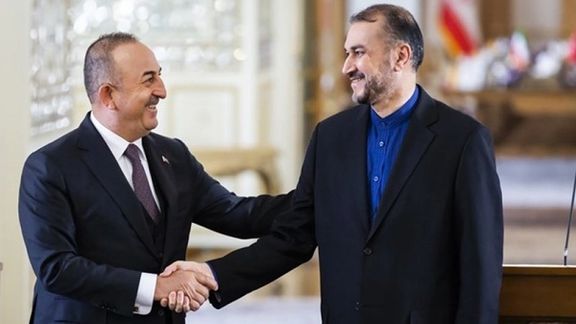
Iran's foreign minister, who has traveled to Turkey, once again repeated the claim by the Islamic Republic authorities that Mahsa Amini "died of natural causes".
Hossein Amir-Abdollahian made the comments in a joint press conference with Turkish Foreign Minister Mevlüt Çavuşoğlu on Tuesday.
“In Iran, women enjoy freedom and a high degree of rights. The fact that an Iranian girl died of natural causes made us sad,” he added.
These statements are made in a situation that the case of Mahsa Amini's death has not yet been officially concluded, while overwhelming evidence from hospital and x-rays showed she received fatal head injuries in Hijab police custody.
Mahsa Amini, the 22-year-old girl died on September 16, three days after her arrest. Amini was arrested for allegedly not wearing the hijab in accordance with standards. The Law Enforcement Command of the of Iran stated she had a heart attack at a police station, collapsed, and fell into a coma before being transferred to a hospital. However, eyewitnesses, including women who were detained with Amini, reported that she was severely beaten and that she died as a result of police brutality which was denied by the Iranian authorities.
Amini’s death and the publication of pictures of her caused a wave of anger and protest in Iran which has been going on for months.
In another part of his statements in Turkey, Amir-Abdollahian once again accused the West of playing a role in Iran's nationwide protests.
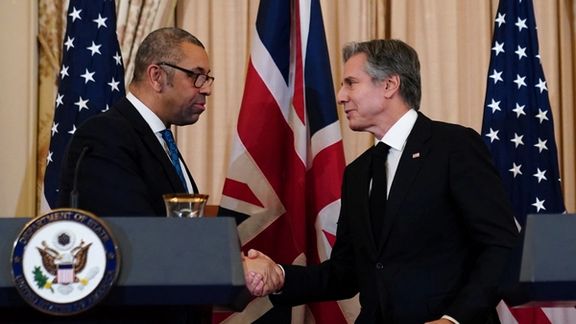
The United States is appalled by Iran's execution of Alireza Akbari, Secretary of State Antony Blinken said at a joint news conference with his British counterpart.
He also vowed that Islamic Republic's deadly violations of rights in its crackdown of widespread protests will not go unpunished.
Blinken and UK Foreign Secretary James Cleverly also voiced support for the Iranian people.
“We’ll keep standing with the brave Iranians who are standing up for their own basic rights led by young women – all of this in the face of extraordinary repression,” he said as the protest movement entered its fifth month.
"We were appalled by the execution of Mr. Akbari just as we've been appalled by everything we've been seeing on the streets of Iran over the last months since these protests began: mass arrests, sham trials, the executions, the use of sexual violence as a tool for protests' suppression," Blinken said at the news conference.
"These abuses will not go without consequence. Together with many other countries, we've been moving forward with a variety of unilateral actions, multilateral measures, using UN mechanisms, to try to hold Iran to account," he added.
Akbari, 61, a British-Iranian national who once served as Tehran's deputy defence minister, was handed a death sentence on charges of spying for Britain.
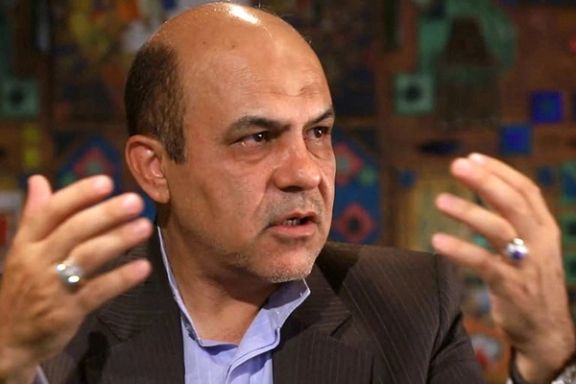
London has said the charges against him were politically motivated. It repeatedly called for his release. Following the execution, it imposed sanctions on Iran's Prosecutor General.
Cleverly thanked the United States for its support. “I’m very grateful to the United States of America for publicly condemning the execution and for Secretary Blinken expressing his condolences in our meeting a few moments ago,” the foreign secretary said.
What was also notable, was Cleverly’s emphasis on Iran’s activities outside its borders in regional countries and its supply of kamikaze drones to Russia used against Ukrainian civilian infrastructure.
“For years, Iran’s leadership have inflicted bloodshed on their regional neighbors by arming and supporting military extremists and militias. Now Iran has gone further and supplied Russian with the drones that were used to kill civilians in Ukraine. And the UK will join with the US and other allies to hold the Iranian regime to account for the violations of the rights of their own people and by making themselves accomplices to Putin’s assault on Ukraine,” British foreign minister said.
As nuclear talks between the Islamic Republic and the West have reached a deadlock, both Tehran’s crackdown on people and its foreign policy have become major stumbling blocks to resuming negotiations. Cleverly’s mention of these factors shows that the West will insist on a major change of behavior by Tehran for any renewed diplomacy.
Cleverly made this point very clear: They call – they call for us, for the US, for us, and our friends to lift sanctions. And the point that we have made is that if they want to see those sanctions removed, they have to fundamentally change their behavior.
At the same time he left the door open for dialogue with Tehran. “But we will continue to speak to Iran where we’re able to and we hope that at some point soon they will listen properly to what we’re saying…”
Blinken in turn repeated Washington’s position that it was Tehran’s fault the nuclear talks came to a halt and the US is now focused on what is happening inside the country and not on the nuclear issue. He also emphasized President Joe Biden’s position, “that Iran never acquire a nuclear weapon.”